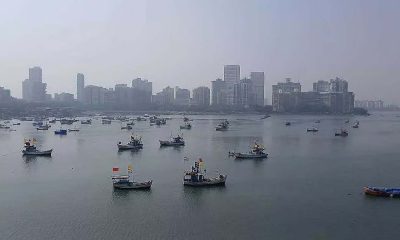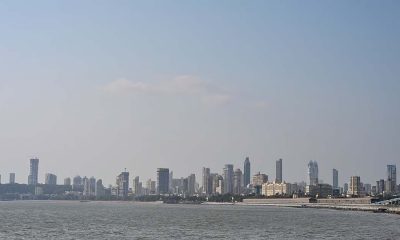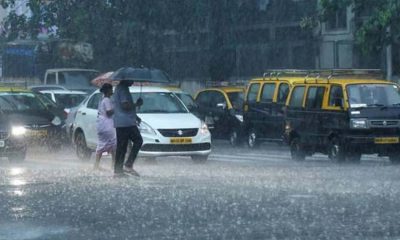National News
Kharge calls Waqf JPC report ‘unconstitutional’; Centre says Opposition misleading issue
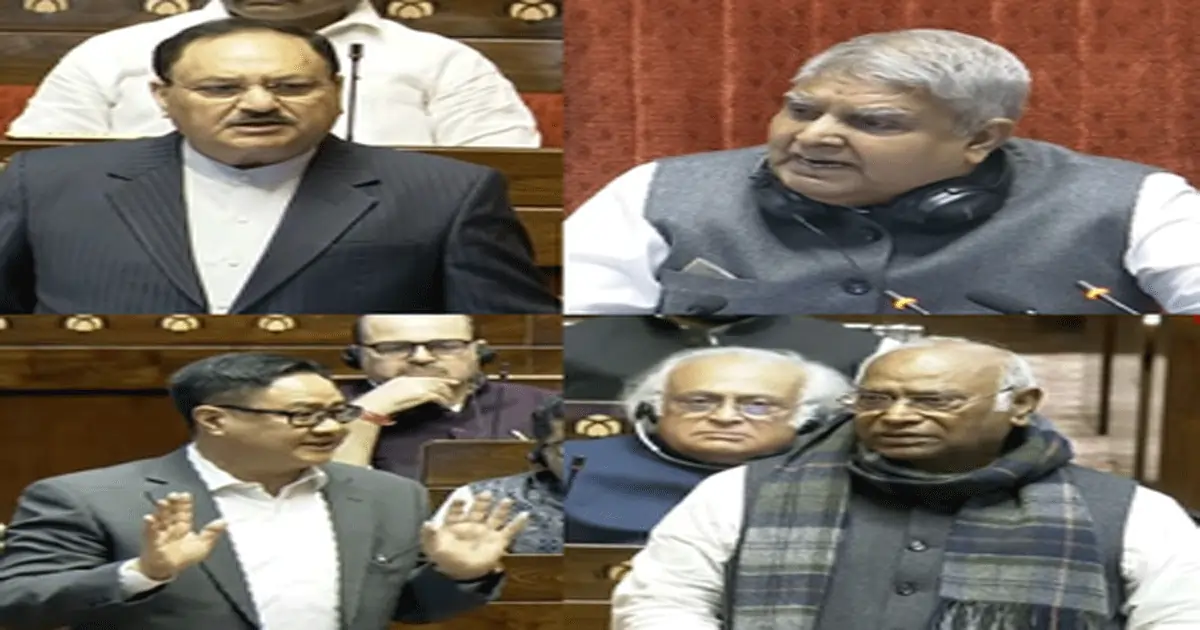
New Delhi, Feb 13: The Joint Parliamentary Committee (JPC) on Waqf (Amendment) bill tabled its report in the Rajya Sabha on Thursday amidst uproar by the members of the Opposition members. As the chaos prevailed, the House was adjourned for 10 minutes and convened again with both sides engaging in discussion on the bill.
Leader of the House J.P. Nadda also condemned the Opposition for creating a ruckus during the reading of the President’s note.
Leader of Opposition in the Rajya Sabha, Mallikarjun Kharge, called the report “unconstitutional” and “fake.” He claimed that multiple members had submitted dissent notes, but the majority view was forced through without due consideration.
“The JPC report on Waqf had dissenting views from several members, but they were bulldozed. This is not right. It is condemnable and an anti-democratic act,” Kharge stated.
Expressing “shock,” he said, “The dissenting views were deleted, and the report is being tabled. I condemn this, and the House will never accept this fake report.”
He demanded that if dissenting views were excluded, the report should be withdrawn and reviewed again. He urged Leader of the House J.P. Nadda to take back the “unconstitutional” JPC report.
Following the uproar, Nadda hit back at the Opposition, slamming their conduct. “Debates and discussions are necessary in Parliament. In a democracy, we agree to disagree. But we must uphold traditions and conduct proceedings in a constitutional manner,” he asserted.
Expressing disappointment, he added, “Despite repeated requests from the Chair, the Opposition disrupted the House even during the President’s message. This behaviour is highly irresponsible and deserves strong condemnation.”
Union Parliamentary Affairs Minister Kiren Rijiju also targeted the Opposition, accusing them of “misleading” the issue. He stated that no part of the report had been deleted or altered.
“Some of the concerns raised by the Opposition were verified, and I found that no section of the report was removed. Everything has been tabled before the House. On what basis are these allegations being made? Do not mislead the issue,” Rijiju said, dismissing the claims as false.
He further pointed out that the Opposition was actively involved in the preparation of the report over the past six months.
Jagdambika Pal, BJP MP and Chairman of the Joint Parliamentary Committee (JPC) for the Waqf (Amendment) Bill, had earlier said that the committee was presenting its report after months of consultations.
Pal highlighted that disagreements were part of the legislative process. He added that even after the report’s finalisation, dissenting members were invited to submit their notes of dissent, which were included in the final report along with stakeholders feedback.
Despite this, opposition leaders continued to express their objections. Trinamool Congress MPs Kalyan Banerjee and Md Nadimul Haque, both JPC members, accused the committee of expunging key portions of their dissent notes from the final report.
The Waqf Act of 1995, introduced to regulate Waqf properties, has long been criticized for mismanagement, corruption, and illegal encroachments. The Waqf (Amendment) Bill, 2024, aims to address these concerns by implementing reforms, including digitisation of records, enhanced auditing measures, improved transparency, and legal mechanisms to reclaim unlawfully occupied properties.
Business
India’s fiscal deficit for April-Sep stands at 36.5 pc of full-year target
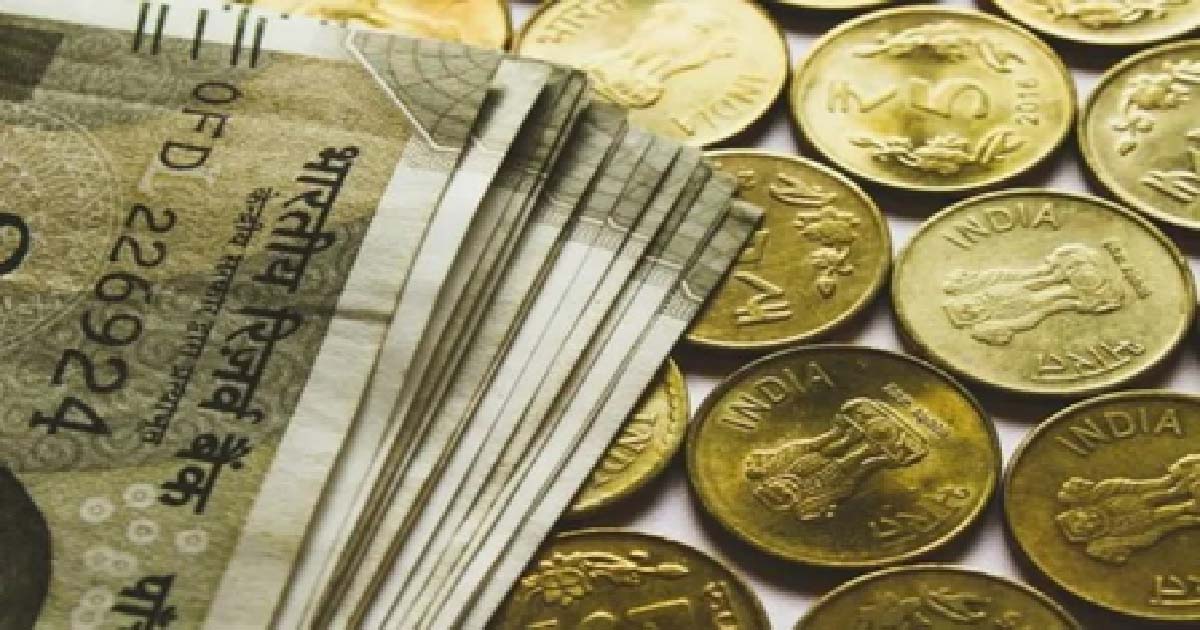
New Delhi, Oct 31: India’s fiscal deficit for the first six months of the current financial year (April-September) stood at Rs 5.73 lakh crore, which constitutes 36.5 per cent of the annual estimate in the budget, government data released on Friday showed.
The figures show that the fiscal deficit is well under control, which paves the way for stable growth of the economy.
Total receipts stood at Rs 17.30 lakh crore, while overall expenditure during April to September was at 23.03 lakh crore rupees. These comprised 49.5 per cent and 45.5 per cent, respectively, of the target set in the budget for 2025-26.
Revenue receipts stood at Rs 16.95 lakh crore, of which tax revenue comprised Rs 12.29 lakh crore and non-tax revenue worked out to Rs 4.66 lakh crore.
Non-tax revenue jumped as the Reserve Bank of India approved a dividend of Rs 2.69 lakh crore to the central government, up from Rs 2.11 lakh crore transferred last year. This will help the central government reduce its fiscal deficit further.
The total government expenditure during the April-Sept period went up to Rs 23 lakh crore compared with Rs 21.1 lakh crore during the same period of the previous year.
This reflects higher Government expenditure on big-ticket infrastructure projects in the highways, ports and railways sectors, which play a key role in spurring economic growth in the country amid increasing economic uncertainties triggered by geopolitical developments and the US tariff turmoil.
The central government has pegged its fiscal deficit target at 4.9 per cent of the gross domestic product (GDP) in its latest budget for FY25, compared with 5.6 per cent in the last fiscal year, which was lower than the revised estimates of 5.8 per cent.
A declining fiscal deficit reflects the strengthening of the fundamentals of the economy and paves the way for growth with price stability. It leads to a reduction in borrowing by the government, thus leaving more funds in the banking sector for lending to corporates and consumers, which leads to higher economic growth.
With the strong emerging fiscal position in 2025-26, the government is likely to have some additional headroom to meet unforeseen expenditure on account of defence, according to a recent Bank of Baroda report.
The observation assumes importance in the backdrop of the tensions with Pakistan following the Pahalgam terror attack and Operation Sindoor.
Crime
ED attaches Rs 127.3 cr shares linked to Alchemist group in PMLA case
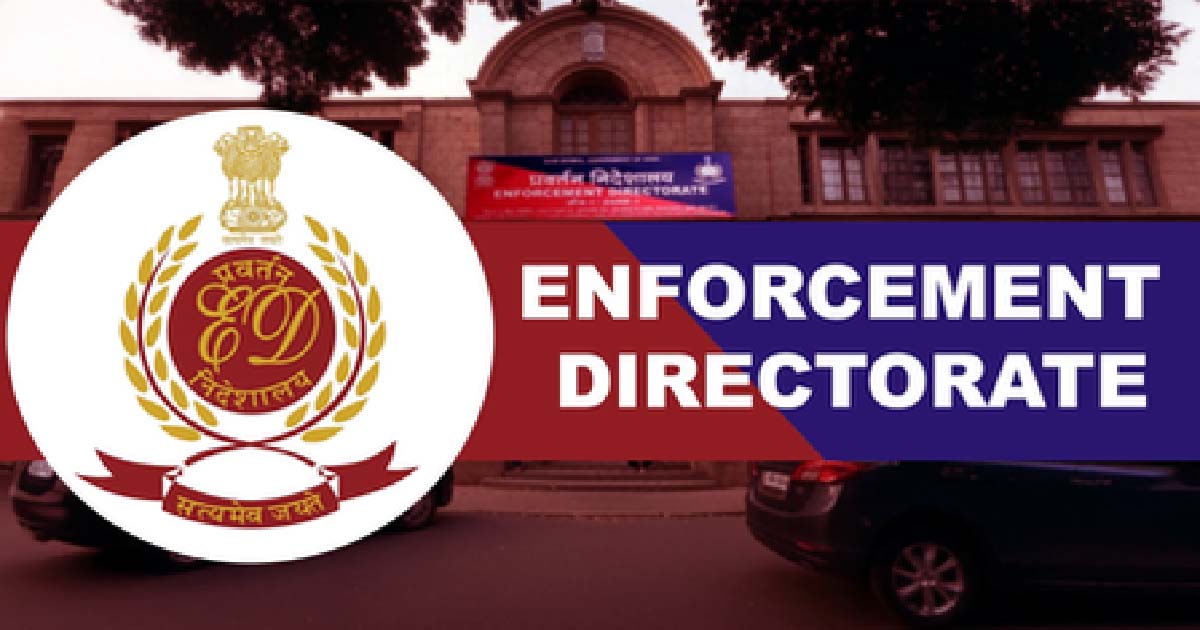
New Delhi, Oct 31: The Enforcement Directorate (ED) has provisionally attached shares worth Rs 127.3 crore linked to two hospitals – Alchemist Hospital and Ojas Hospital in Panchkula – as part of an ongoing money laundering probe involving the Alchemist Group, the agency said on Friday.
The properties are beneficially owned by businessman Karan Deep Singh. The order was issued by the ED’s Delhi Zonal Office under the Prevention of Money Laundering Act (PMLA), 2002, on October 30, 2025.
The action is connected to a probe into alleged large-scale financial fraud and misappropriation of public funds by the group’s promoters and associated companies.
The ED initiated its investigation based on an FIR registered by Kolkata Police, which was later taken up by the Central Bureau of Investigation (CBI), ACB Lucknow, under Sections 120-B and 420 of the IPC against Alchemist Township Pvt. Ltd., Alchemist Infra Realty Pvt. Ltd., their directors, and former Rajya Sabha MP and group chairman Kanwar Deep Singh.
“The case pertains to a large-scale criminal conspiracy to defraud investors by illegally raising funds through fraudulent Collective Investment Schemes (CIS), offering unusually high returns, and/ or making false promises of allotting plots, flats, and villas,” ED said in its press note.
The agency claims that Alchemist Holdings Ltd. and Alchemist Township India Ltd. raised approximately Rs 1,848 crore through these schemes, siphoning the money for unauthorised use.
“ED investigation revealed that the misappropriated funds were systematically layered through complex financial transactions involving group entities of the Alchemist Group, with the intent to conceal the illicit origin of the funds,” the agency said.
“These tainted proceeds were ultimately used for the acquisition of shares and the subsequent construction of Alchemist Hospital and Ojas Hospital. The transactions were deliberately structured to project these assets as legitimate, thereby disguising the Proceeds of Crime (POC),” it further added.
According to the ED, the shares of Alchemist Hospital and Ojas Hospital are held to the extent of 40.93 per cent and 37.23 per cent, respectively, by M/s Placid Estate Pvt. Ltd., a company beneficially owned by Kanwar Deep Singh.
“The assets of Alchemist Hospital and Ojas Hospital as held by M/s. Placid Estate Pvt. Ltd, valued at Rs 127.3 crore, has been attached in the current provisional attachment order,” it said.
In addition, the ED noted that it had previously arrested Kanwar Deep Singh on January 12, 2021.
A prosecution complaint was filed on March 2, 2021, followed by two supplementary complaints in July 2024 and September 2025. So far, assets worth Rs 365.42 crore have been attached in the case through earlier orders, including shares held by Sorus Agritech Pvt. Ltd. in the same hospitals.
Further investigation is underway.
Business
Mumbai Infra News: MHADA Selects Firm For Kamathipura Redevelopment Project, Awaits State Nod
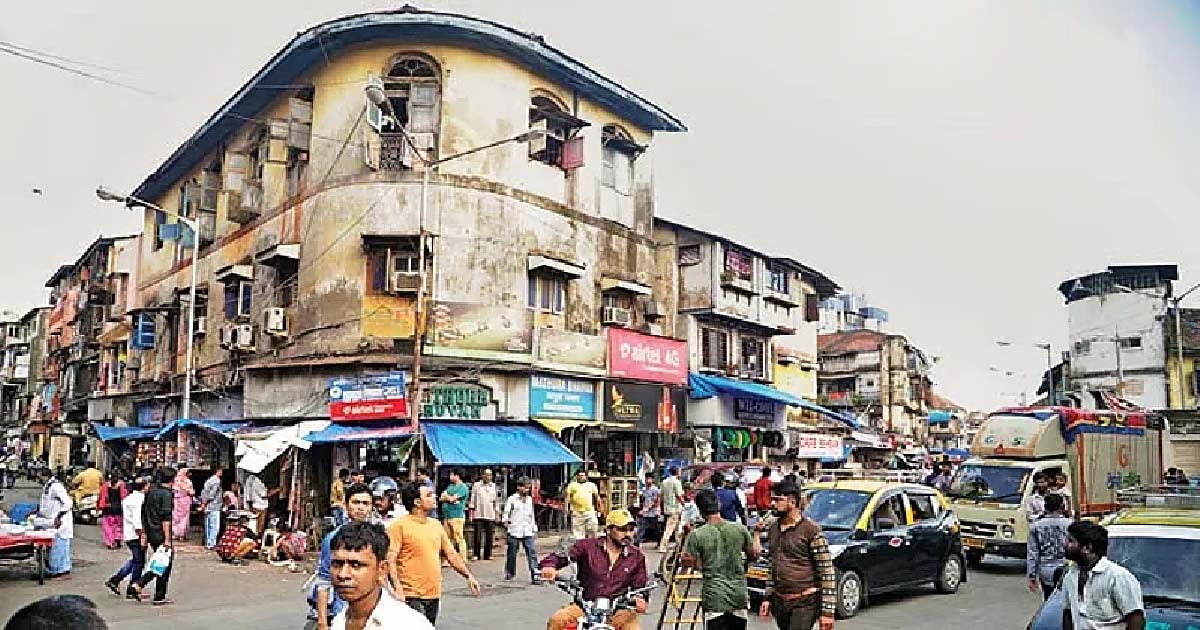
Mumbai: In a major step toward transforming one of Mumbai’s oldest and most congested neighbourhoods, the Maharashtra Housing and Area Development Authority (MHADA) has selected AATK Constructions for the long-pending redevelopment of Kamathipura in South Central Mumbai. The project, spread over 34 acres, has now moved to the state government’s high-power committee (HPC) for approval before it goes to the state cabinet for final clearance.
MHADA’s Mumbai Building Repairs and Reconstruction Board (MBRRB) had received two bids, one from AATK Constructions and another from J Kumar Infraprojects. After a detailed evaluation of technical and financial aspects, MHADA declared AATK the successful bidder and forwarded the proposal to the HPC for consideration.
“This urban renewal project will be a historic one,” said MLA Amin Patel, who has been advocating for Kamathipura’s redevelopment for more than a decade. “Bringing landlords, tenants and the government to a consensus was not easy, but this plan will finally offer a dignified living space to thousands.
The Kamathipura Redevelopment Project covers 8,001 tenements, including 6,625 residential and 1,376 commercial units, spread across 943 cessed buildings and involving 800 landowners. Most of these structures are over a century old and beyond repair, with many plots measuring only 50 sq metres, making independent redevelopment unfeasible.
Under the proposed plan, eligible residential occupants will receive 500 sq ft carpet area flats in new towers up to 57 storeys high, while non-residential tenants will get 225 sq ft spaces. Sale buildings will rise to 78 storeys, creating a mixed-use skyline that combines residential, commercial and sale components.
The redevelopment is expected to replace dilapidated tenements with modern high-rise structures equipped with amenities and better infrastructure. Landowners will also benefit from additional entitlements based on plot sizes, with larger plots earning proportionally higher returns.
Chief Minister Devendra Fadnavis, while addressing the Assembly earlier, acknowledged the significance of the project, noting that he had worked ‘for the people of Kamathipura.’ The state government had earlier entrusted the redevelopment responsibility to MHADA’s MBRRB under the Construction and Development (C&D) format after private developers expressed disinterest due to the complex ownership patterns.
Once approved by the HPC and cabinet, the long-awaited transformation of Kamathipura is expected to finally take off, turning one of Mumbai’s most dilapidated localities into a modern, livable urban zone.
-

 Crime3 years ago
Crime3 years agoClass 10 student jumps to death in Jaipur
-

 Maharashtra1 year ago
Maharashtra1 year agoMumbai Local Train Update: Central Railway’s New Timetable Comes Into Effect; Check Full List Of Revised Timings & Stations
-

 Maharashtra1 year ago
Maharashtra1 year agoMumbai To Go Toll-Free Tonight! Maharashtra Govt Announces Complete Toll Waiver For Light Motor Vehicles At All 5 Entry Points Of City
-

 Maharashtra1 year ago
Maharashtra1 year agoFalse photo of Imtiaz Jaleel’s rally, exposing the fooling conspiracy
-

 National News1 year ago
National News1 year agoMinistry of Railways rolls out Special Drive 4.0 with focus on digitisation, cleanliness, inclusiveness and grievance redressal
-

 Maharashtra12 months ago
Maharashtra12 months agoMaharashtra Elections 2024: Mumbai Metro & BEST Services Extended Till Midnight On Voting Day
-

 National News1 year ago
National News1 year agoJ&K: 4 Jawans Killed, 28 Injured After Bus Carrying BSF Personnel For Poll Duty Falls Into Gorge In Budgam; Terrifying Visuals Surface
-

 Crime1 year ago
Crime1 year agoBaba Siddique Murder: Mumbai Police Unable To Get Lawrence Bishnoi Custody Due To Home Ministry Order, Says Report







